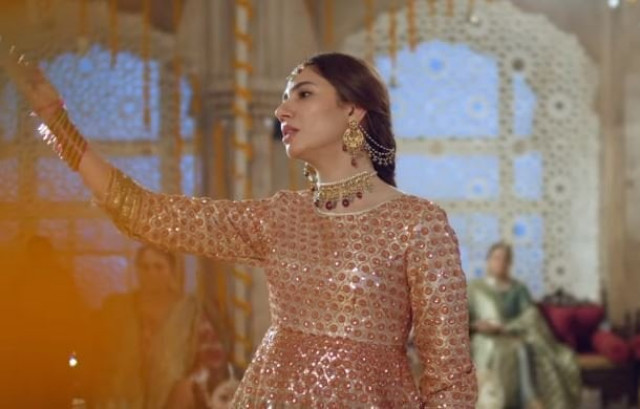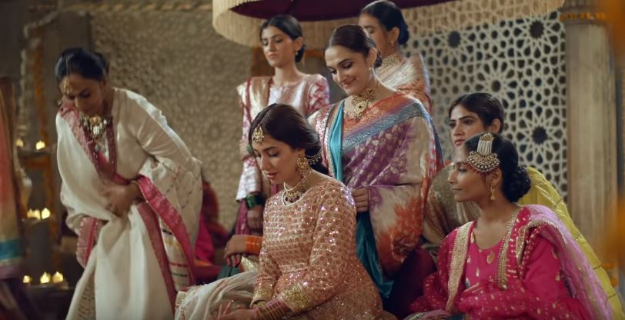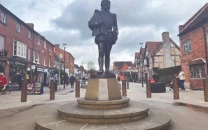Mahira Khan makes a prayer for women in Shoaib Mansoor's 'Dua-e-Reem'
Translating to 'prayer of a woman', it is a clever take on Allama Iqbal's iconic prayer 'Lab Pe Aati Hai Dua'

Photo: YouTube
Titled Dua-e-Reem, literally translating to 'prayer of a woman', is a clever take on Allama Iqbal's iconic prayer Lab Pe Aati Hai Dua. Visualised as a young bride's prayer with regards to her husband and her new home, this dua is fit for the time.
 Photo: YouTube
Photo: YouTubeWith stunning visuals of a sangeet ceremony opening up the song, with young and old merry-makers gathered around the bride, we're transported to a scene we often see at desi weddings - old women teaching the young bride to be dangerously submissive to her husband.
A band of elderly women take the beat first, making a prayer for the bride, albeit a regressive one. From asking God to give her strength to be patient with her husband when he hits her, to being the light of the house if he brings darkness despite her own struggles, the elderly leave no regressive prayer behind.
Having had enough, the young bride, played by Mahira, puts a stop to their singing, reminding them that it's her wedding, therefore she'll pray for her own self.

She then proceeds to ask for strength to stand up to her husband among other things, singing, "The house should be his, but the rule must be mine. To love my husband should be my conviction - not worship, slavery or total submission. You have created him a man, my Lord. Now, teach me how to make him a human."
The powerful lyrics paint a picture of a progressive mindset where a woman is not to be treated like a man's shoe, instead, she should be treated with respect that she deserves.
At a time like this, such a narrative has been a God-sent, and hopefully, it will hit the right chord with the general public and help to dispel the discord over women's rights and their well-placed demands. Because, it's not just a demand, it's their right.
Have something to add to the story? Share it in the comments below



















COMMENTS
Comments are moderated and generally will be posted if they are on-topic and not abusive.
For more information, please see our Comments FAQ